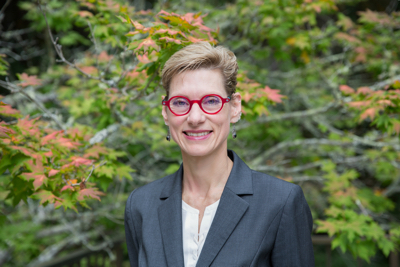In my first six months here, my respect for the extraordinarily special character, mission, and impact of UC Santa Cruz has been consistently reinforced. I am honored to be here engaged with you in the transformative work of this university. It is you, your work, and our students’ work that makes me excited about the strategic academic planning (SAP) process and the capacity it has to help us move forward together.
In partnership with the consultant firm Entangled Solutions, we are in the process of identifying the major themes that make UC Santa Cruz the remarkable place that it is. Specifying and building upon those things will allow us to increase support of and recognition for our programs, our faculty, and our students, as well as to shape our future.
I am happy now to update you on our work and to explain how the process will unfold. We are currently in the midst of the data-collection phase of our effort. Our consultants have conducted more than two-dozen interviews with campus leaders, they have met with our SAP steering committee, and together we’ve compiled a list of groups and people we feel must be engaged to build an inclusive and successful plan. I have been speaking about the plan with faculty across the divisions. We are seeking to involve all those who have a stake in our academic mission.
This initial phase, the Campus Landscape Analysis, will wrap up before the end of January. Our consultants will be back on campus next week, December 5 and 6, to meet with Academic Senate leaders, deans, college provosts, Staff Advisory Board, SUA, and GSA. They will also connect with the steering committee behind Envision (the most recent campus planning effort), and hold an open forum for all interested faculty. This first phase of the project is designed to document our current state, glean insights on our strengths, and get all of us thinking about our campus’s challenges and opportunities.
The next two phases the Future State Design and Opportunity Analysis will take place during the winter and spring quarters, respectively.
The design phase comprises a series of workshops and focus groups with campus constituents that will build consensus around the academic themes that make us unique. It also entails tallying our resources, and outlining the institutional and organizational structures we need to build (or reform) to advance research and teaching on campus. We hope that the dialogues and debates during this phase will be both respectful and serious.
The opportunity phase involves looking at at peer institutions so we can have a clearer sense of our opportunities and can assess both positive and negative models.
The fourth, and most critical phase, is the Strategic Plan and Implementation Playbook. This phase involves crafting a clear and actionable academic plan with measureable implementation markers. It is this final phase, which will ensure that the plan developed over the course of the year will lead to real action. We aim to produce the implementation playbook by summer 2018. Implementation of our five-year plan will begin during the 2018–19 academic year.
I urge all who are interested in crafting the blueprint for our academic future to get involved in this process. Start discussions in your departments. Speak to your Dean. Attend forums. The first Faculty Open Forum will be held 3:30–4:30 p.m. on Wednesday, December 6 in 210 Humanities 1. Faculty can register here by Tuesday, December 5. Voice your opinions. Email us with suggestions and feedback at academicplan@ucsc.edu.
Visit our new plan website, cpevc.ucsc.edu/academic-plan, and check back regularly. More details and timelines will be coming soon.
Thank you for all the work you have done and are doing for our students, for our community, and for the greater good of the world. Thank you for being a part of shaping our future.



